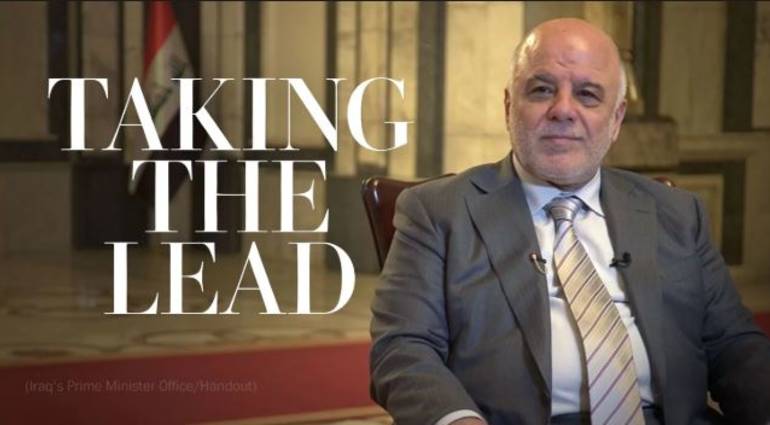Thursday, September 06 2018 at 11:05 am

Special / Sky Press translation
The Washington Post
BAGHDAD (Reuters) - Iraqi authorities are preparing to launch a fresh campaign against violent protests on Wednesday after security forces killed six demonstrators in two angry marches in the southern city of Basra because of government corruption and lack of basic services.
The wave of violence has brought calls for solidarity protests acrossthe country as activists seek to revive a campaign that began in early July due to intermittent electricity, unsafe water, unemployment and frustration with a political system that failed to name a new government almost months after national elections.
The suspension of the political transition led to an increase in the United States and Iran in its unpredictable intervention, which prevented any clear winner in the paralysis parliament a day after meeting for the first time on Monday.
By Wednesday night, demonstrators who had gathered in Basra burned the municipal office building and police responded with warning shots in an attempt to disperse the crowd.
There were no immediate reports of injuries. Where protesters in Tahrir Square in Baghdad avoided the kind of confrontation that prompted police to use lethal force earlier in the week. Activists said they expected the number of protests to rise on Friday, the first day of the weekend.
Prime Minister Haider al-Abadi, who is seeking a second term in office with support from Washington, ordered an inquiry into the killing of a demonstrator who appeared to have been killed by live fire late Monday in Basra.
He also ordered security forces to protect and facilitate peaceful demonstrations and urged protesters to refrain from provoking the authorities and damaging government property.
This did not discourage renewed demonstrations on Tuesday when protesters hurled stones and Molotov cocktails at government buildings, triggering warning shots and tear gas by security forces.
Five local protesters were killed and 24 wounded on Tuesday evening, local security officials said. A security official told state television that 22 members of the security forces were also wounded.
Calm was restored in the early hours of Wednesday after local officials imposed a curfew, but images of the blood-soaked protesters provoked angry condemnation from activists and politicians.
UN Special Representative for Iraq Jan Kubis said he was deeply concerned about the deaths in Basra and urged the authorities to avoid the use of disproportionate and lethal force against demonstrators and to provide protection for the people of Basra. He also called on newly elected Iraqi MPs to set aside differences and work quickly towards forming A new government.
"Long-term stability and improved economic performance go hand in hand, and addressing these challenges lies with political leaders working together for unity and working together for the national interest," he said in a statement.
Street protests in Iraq may cost the prime minister his job
Muqtada al-Sadr, a popular Shi'ite cleric whose bloc won the largest number of seats in the May elections and has widespread support in Basra, said in a Twitter message that protesters were demanding "to live in dignity." It did not amount to condemnation by the security forces. Use live ammunition.
In early July, residents of Basra and other Shi'ite-majority cities in the south began protesting frequent power cuts and inexhaustible saltwater flowing from faucets in the oil-rich region.
The demonstrations turned into a full-scale campaign against local and federal officials, blamed by protesters for rampant corruption and mismanagement that have made Basra stalled, even though the region produces most of Iraq's oil.
Tensions rose this week when Iraq's parliament met for the first time on Monday after a recount in the May elections amid accusations of fraud. Two blocs demanded a majority of seats, resulting in a dead end and failure to elect a president, as stipulated in the Constitution.
On Tuesday, the head of the interim parliament appealed to the Federal Supreme Court to settle the dispute and postpone the next parliamentary session for at least 10 days.
Iraq's fractious political landscape and violent regional rivalries have usually delayed the formation of his government for many months since Saddam Hussein was toppled in 2003.
Both the United States and Iran have a significant stake in the outcome of the conflict, with Washington retaining its weaker hand.
Abadi entered an alliance with Sadr, one of the most vocal critics of the United States, who emerged in 2004 as a dominant symbol of resisting the US-led invasion. While opposition to US forces has diminished, his high criticism has not. Sadr also opposes Tehran's influence in Iraq, but maintains cordial relations with Iranian religious and political leaders.
Abdel Hadi and Sadr claim they are getting the necessary support from the majority of lawmakers to form the next government, which will enable Abbadi to retain his post despite his poor performance in the May elections.
Al-Amiri and Maliki claimed that they retain a legislative majority. The most important splintering of Hezbollah was Faleh al-Fayyad, who was dismissed by Abadi last week as a national security adviser.
Amiri has angrily accused McGourke of trying to force the formation of the next Iraqi government, which will be charged with managing massive rebuilding efforts after a three-year war against a push to revive Iraq's stagnant economy.
The next government will have to strike a balance between receiving much-needed US security support aimed at preventing another extremist insurgency and maintaining vital trade with Iran. Trump's administration has sought to isolate Tehran internationally through renewed sanctions - which ordinary Iraqis have felt the effects of.
skypressiq.net

